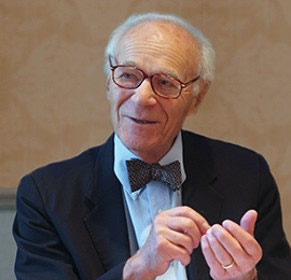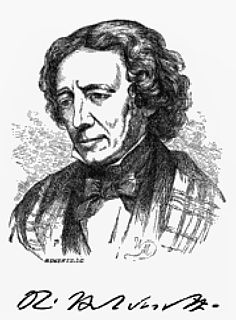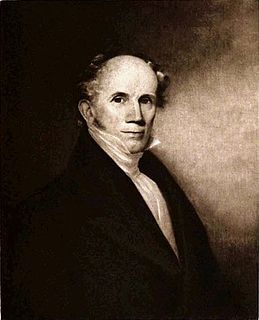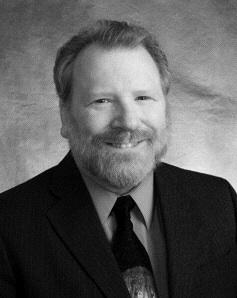
Lawrence Robert Klein was an American economist. For his work in creating computer models to forecast economic trends in the field of econometrics in the Department of Economics at the University of Pennsylvania, he was awarded the Nobel Memorial Prize in Economic Sciences in 1980 specifically "for the creation of econometric models and their application to the analysis of economic fluctuations and economic policies." Due to his efforts, such models have become widespread among economists. Harvard University professor Martin Feldstein told the Wall Street Journal that Klein "was the first to create the statistical models that embodied Keynesian economics," tools still used by the Federal Reserve Bank and other central banks.
The American School, also known as the National System, represents three different yet related constructs in politics, policy and philosophy. It was the American policy from the 1860s to the 1970s, waxing and waning in actual degrees and details of implementation. Historian Michael Lind describes it as a coherent applied economic philosophy with logical and conceptual relationships with other economic ideas.

Lauchlin Bernard Currie worked as White House economic adviser to President Franklin Roosevelt during World War II (1939–45). From 1949-53, he directed a major World Bank mission to Colombia and related studies. Information from the Venona project, a counter-intelligence program undertaken by agencies of the United States government, references him in nine partially decrypted cables sent by agents of the Soviet Union. He became a Colombian citizen after the United States refused to renew his passport in 1954 due to doubts of his loyalty to the United States engendered by testimony of former Communist agents and information in the Venona decrypts.
Postal savings systems provide depositors who do not have access to banks a safe and convenient method to save money. Many nations have operated banking systems involving post offices to promote saving money among the poor.

Richard Hildreth, was an American journalist, author and historian. He is best known for writing his six-volume History of the United States of America covering 1497–1821 and published 1840-1853. Historians consider it a highly accurate political history of the early Republic, but with a strong bias in favor of the Federalist Party and the abolition of slavery.
William Newmarch was an English banker, economist and statistician.

Jesús Huerta de Soto Ballester is a Spanish economist of the Austrian School. He is a professor in the Department of Applied Economics at King Juan Carlos University of Madrid, Spain and a Senior Fellow at the Ludwig von Mises Institute.
Lawrence H. White is an American economics professor at George Mason University who teaches graduate level monetary theory and policy. He is considered an authority on the history and theory of free banking. His writings support the abolition of the Federal Reserve System and the promotion of private and competitive banking.
David Ernest William Laidler is an economist who has been one of the foremost scholars of monetarism. He published major economics journal articles on the topic in the late 1960s and early 1970s. His book, The Demand for Money, was published in four editions from 1969 through 1993, initially setting forth the stability of the relationship between income and the demand for money and later taking into consideration the effects of legal, technological, and institutional changes on the demand for money. The book has been translated into French, Spanish, Italian, Japanese, and Chinese.

Condy Raguet was the first chargé d'affaires from the United States to Brazil and a noted politician and free trade advocate from Philadelphia, Pennsylvania. Of French descent, Raguet was educated at the University of Pennsylvania. After graduating he began studying law but had to give up his studies after the death of his father. He briefly worked as supercargo for a counting house, before going into business for himself. He later worked as manager or president for several companies, the most notable being the Philadelphia Savings Fund Society. In 1816 Raguet read about the growth of savings banks in Great Britain and liked the idea; he approached other Philadelphia business associates and together they created the Society, the first savings bank in the United States.
Steven Pressman is an American economist. He is a former Professor of Economics and Finance at Monmouth University in West Long Branch, NJ. He has taught at the University of New Hampshire and Trinity College in Hartford, Connecticut.

Alexander del Mar was an American political economist, historian, numismatist and author. He was the first Director of the Bureau of Statistics at the U.S. Treasury Department from 1866–69.

William Kurt Black is an American lawyer, academic, author, and a former bank regulator. Black's expertise is in white-collar crime, public finance, regulation, and other topics in law and economics. He developed the concept of "control fraud", in which a business or national executive uses the entity he or she controls as a "weapon" to commit fraud.

Juichi Soyeda was a Japanese lawyer, senior civil servant and academic economist. In 1913 he was delegated by the Tokyo Chamber of Commerce in Japan to study the California Alien Land Law of 1913.
Raymond Adrien Marie de Roover (1904–1972) was a noted economic historian of medieval Europe, whose scholarship explained why Scholastic economic thought is best understood as a precursor of, and wholly compatible with, classical economic thought. In contrast, many mid-20th-century economic historians, such as R.H. Tawney, taught that Karl Marx was the last and greatest of the Scholastic economists.
Arthur Germanovich Raffalovich was a Russian financier and economist.
This article details the history of banking in the United States. Banking in the United States is regulated by both the federal and state governments.
For the German composer, see Adolf Jensen
William Dodsworth (1827–1910) was a financial journalist and expert, and from 1893 to 1910 president and editor of the Journal of Commerce and Commercial Bulletin.
Horace Secrist was an American statistician and economist, a professor and the director of the Bureau of Economic Research at Northwestern University.








